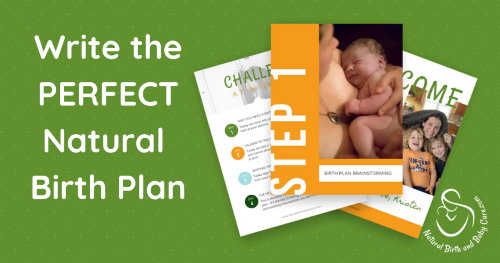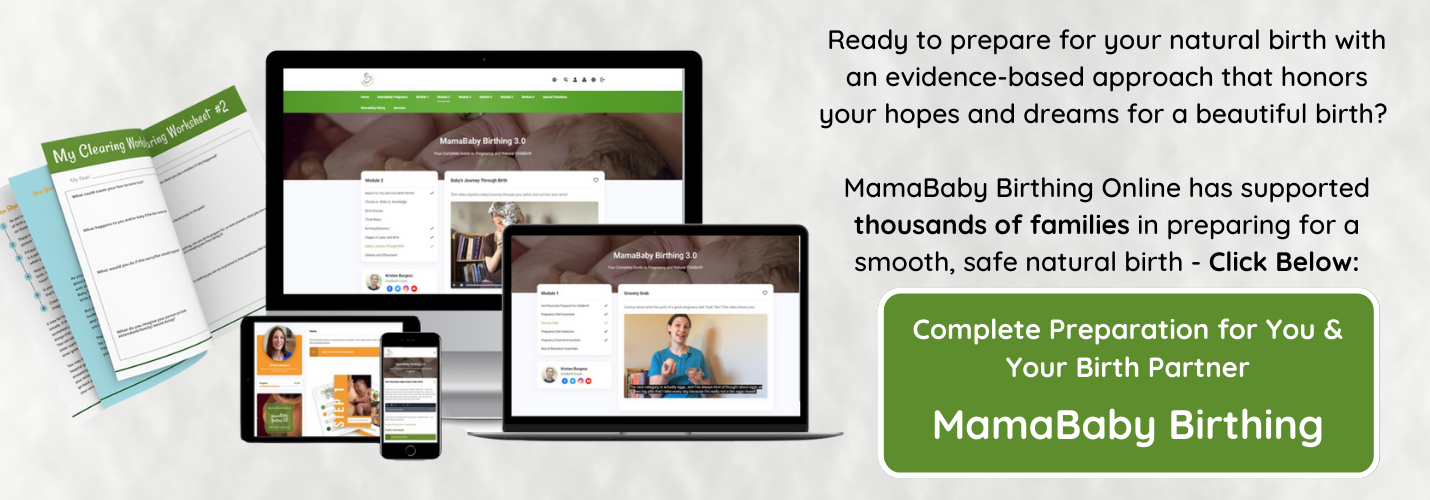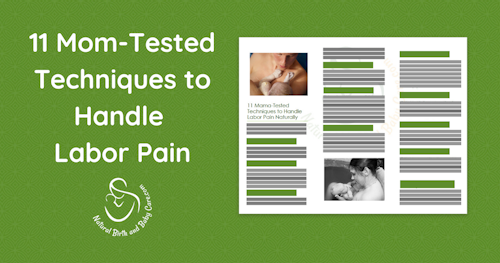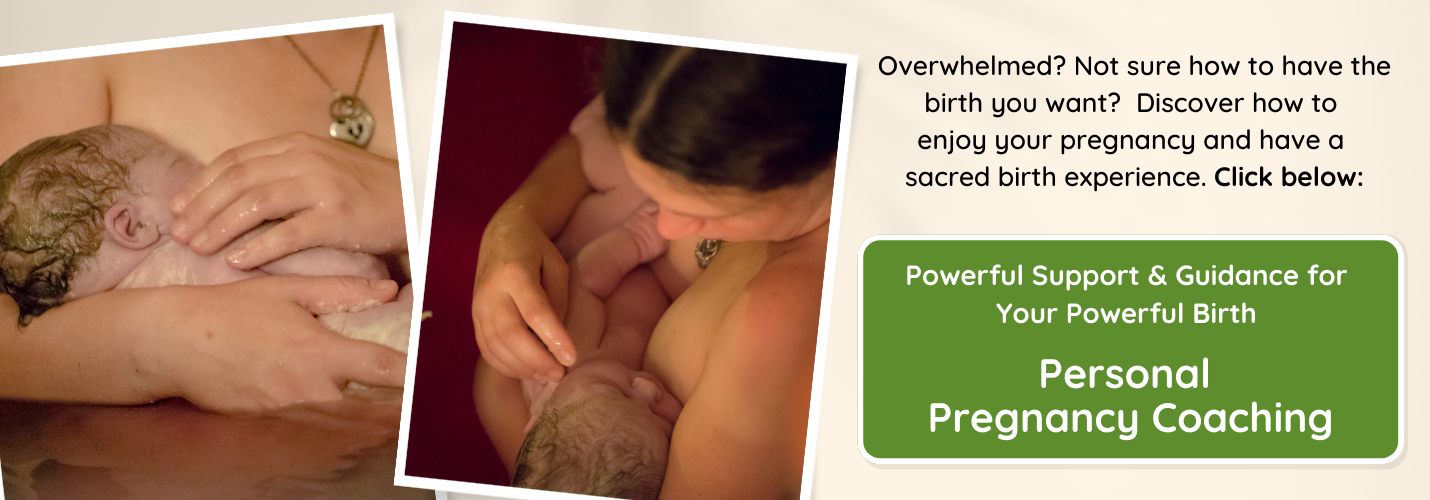Pregnancy is amazing, but it can also be overwhelming for autistic moms. Increased sensory sensitivities, self-care and pregnancy diet, managing appointments, and handling social and emotional issues can all present big challenges.
Understanding these challenges paired with planning can help you enjoy your pregnancy and give your baby a great start.
Sensory Challenges for Pregnant Autistic Moms
Most women experience some sensory changes during pregnancy, especially with taste and smell.
Autistic pregnant women may notice these changes more intensely. Other sensitivities often develop (or get more intense), such as to touch, light, and sound.
Taste:
- Stick to Familiar Foods: Eat foods you know you like and can tolerate. You do need to pay attention to pregnancy nutrition, but can often have a good pregnancy diet without needing a lot of variety (this is probably the #1 thing I help pregnant clients with – click here if 1:1 help would support you!)
- Experiment Gradually: Introduce new foods (or re-introduce foods) slowly and in small amounts to minimize discomfort.
- Use Mild Flavors: Bland foods are often easier during pregnancy, especially in the first trimester
Want personal support to stay healthy and low-risk through your pregnancy? Longing for authentic guidance to make your sacred birth dream a reality?
Click to book a pregnancy and birth visioning call with me. We’ll talk about your hopes and dreams and explore if my pregnancy coaching program is a good fit for you.
Touch:
- Choose Comfortable Clothing: Wear soft, breathable fabrics. Or, if you like more binding clothing, find maternity support garments. Clothing was a HUGE struggle for me when pregnant, as I just couldn’t tolerate the feel of most maternity pants. I ended up wearing mostly skirts with elastic waists. Find what works for you.
- Minimize Physical Contact: You do not have to let people touch you just because you’re pregnant! Ask people not to touch your belly. You can also refuse any touch from a care provider. Tell them you’re sensitive to touch as ask them to help you figure out the best way to get care. For me, light touch was a challenge but my midwife’s firm touch when feeling my baby’s position felt okay, so we limited touch to that.
- Choose Comfy Bedding: Sleep is a big issue both for pregnant mamas and autistic women. It’s worth it to invest in bedding that feels comfortable to you, including pillows, weighted blankets, etc. if they help you get more comfortable.
Smell:
While most pregnant women notice an enhanced sense of smell, it may be even more challenging to neurodiverse mamas-to-be. Here are some hints:
- Avoid Strong Scents: Use unscented or lightly scented products and avoid areas with strong odors.
- Know a Safe Space: Head to your car or office if scents at work are overwhelming. Remove scents you don’t like from your home! This may mean changing laundry, cleaning, and hygiene products to unscented versions.
- Use Essential Oils in a Diffuser: You may like certain essential oils, but avoid putting them on your skin or fabric (like your pillowcase) if they get overwhelming. You can empty a diffuser easily if needed. If a scent helps you calm down or stop nausea, you can keep a small bottle or keep that on a handkerchief in your bag.
Light:
Light is one of the most-cited sensitivities in studies about pregnant women on the spectrum. Given the number of doctor’s visits and with some mamas choosing a hospital birth, light is a big deal! Here are suggestions that can help:
- Things you can control: Use dimmable lights, wear tinted glasses (even sunglasses) in places with harsh lighting, and reduce screen time. Reduced screentime at night can help bring circadian rhythms back into balance, which may help you regulate your nervous system, too.
- Use Blue Light Filters: Blue light filters on your devices or glasses may reduce eye strain.
- Create a Calm Space: Have a low-light area you can go to if needed. Dim your office lights, in your bedroom at home, or even using sun-blocking accessories in your vehicle’s windows
Sound:
- Use Noise-Canceling Headphones: These can help you manage exposure to loud or sudden noises. Noise-cancelling or damping ear plugs can work, too. I have a pair of Loops that helps me!
- Plan Quiet Times: Designate specific times during the day to relax in a quiet environment. Don’t feel guilty about closing the door!
- Use Music and/or White Noise: Sometimes music can help you ignore other sounds, and may be calming in other ways (for example, putting my hand on a speaker or car door so I can feel the bass calms me down). White noise may be helpful for sleeping or studying.
(NOTE: Want a Perfect Birth Plan Template? Use this template and step-by-step videos to write a birth plan that gets your birth team on your side for a beautiful birth experience! Get the birth plan kit here.)

Diet and the Autistic Pregnant Woman
Pregnancy nutrition is the #1 way to grow a healthy baby and stay low-risk throughout your pregnancy and birth. It’s difficult if you’ve got food aversions or eat on a limited range of foods, however.
Protein is critical to your baby and to prevent complications like preeclampsia. For autistic moms-to-be who do not eat many protein foods, it’s worth it to find at least 1-2 high-protein foods you can eat.
Greek yogurt may be a good option. Other proteins to consider are:
- High-quality dairy (milk, hard cheeses, cottage cheese, yogurt)
- Eggs
- Fish
- Beef, bison, or other red meats
- Poultry
- Nuts & seeds (including hummus and nut butters)
- Legumes (lentils and beans)
- Quinoa (a grain-like seed that is a complete protein)
Here are some other tips to help you manage your pregnancy diet:
Structuring Your Meals
Autistic individuals often need routine, and pregnancy is a time when sticking to a structured meal plan can help ensure you’re getting the nutrients you need.
- Set a Meal Schedule: Eating at consistent times each day can help regulate your appetite and remove the fatigue that comes from having to make decisions about when to eat, how much to eat, etc.
- It’s Okay to Eat the Same Menu: You should have some nutrient variety in your diet, but overall, you can prepare the same meals throughout your pregnancy if they already incorporate plenty of protein and some vegetables and carbs (fruits, grains, etc.). It’s OK if you schedule your meals and repeat the same menu daily!
- Get Healthy Fats: Sometimes fats are hard for autistic moms because of texture. Your baby needs healthy fats. Full-fat dairy, avocados, coconut oil or milk, nuts & seeds, eggs with the yolk, fish like salmon, etc. are good sources that may be easier to eat than fatty cuts of meat. Ground meats or roast meats where you can remove the fat are also good and contain many nutrients vital to your baby.
- Prepare Simple Meals: Focus on easy-to-make recipes that don’t overwhelm you with too many steps or ingredients.
Dealing with Sugar Cravings
Cravings are common during pregnancy. Protein and other healthy foods are fine to indulge in, but you want to watch how much sugar you get (including from fruit and from carbohydrates like bread and pasta).
- Moderation is Key: You CAN have some sweets, just in moderation. Note that a craving for sweets is often the body saying it needs more protein.
- Healthy Alternatives: Satisfy your sweet tooth with nutrient-dense foods like yogurt or nut mixes sweetened with just a little of fruit or a bit of an alternative sweetener like stevia or xylitol.
- Mindful Eating: Choose textures you like and eat more slowly, savoring each bite. This improves digestion and increases your sense of fullness (satiety) which may help prevent cravings later.
Navigating Emotional and Social Challenges
Pregnancy is a time of shifting roles in your family and community. It’s also a time when who you are and how you see yourself changes. The extra attention, shift in self-perception, and disruption to routines can be a real challenge for autistic women.
Here are some tips to navigate through this time:
Managing Anxiety and Stress
Pregnancy can increase anxiety levels, especially with all the changes happening in your body and life.
- Stick to Routines You Know Work for You: Many of your normal routines work for pregnancy. If sleep routines, relaxation routines, stimming, etc. help you, you can continue those.
- Create a Relaxation Routine: If you don’t already have good routines, you can try activities like deep breathing, meditation, or gentle yoga to help with stress. Prenatal yoga or dance is a good start. Remember, nobody has to see you so give it a try!
- Seek Professional Support: If anxiety becomes overwhelming, consider talking to a therapist who understands autistic adults.
A Note About Baby Care
You might worry about caring for your baby as an autistic mama, but many autistic women feel like their newborns and young babies are really an extension of themselves (that’s why I call my childbirth class “MamaBaby Birthing” – the mamababy is a real thing!).
Babies are also soothed by many of the things that may sooth you. For example, most of my babies liked being held and gently bounced up and down on a birth ball (exercise ball). Babies like rocking in a rocking chair!
I also put my older babies in an Ergobaby carrier and rocked back and forth with them there, which put them to sleep and soothed me. I wrote a lot of the information on this site while rocking my babies back and forth in a carrier on my back 😉
Baby care activities like nursing, diaper changes, elimination communication (if you choose to do it), etc. will all quickly become routine. You do them a lot, so you’ll feel very comfortable, very fast.
Looking for a natural childbirth course that’s evidence-based AND focused on honoring your intution and power during your birthing time?
Click here for details on MamaBaby Birthing, my complete online birthing course. Used by thousands of birthing families, you’ll be completely prepared for a beautiful, safe, and confident birth experience.

Handling Social Interactions
Pregnancies usually get public attention and involve community rituals you may find challenging (like baby showers).
People asking you questions about the pregnancy are common:
- How are you feeling?
- Is it a boy or girl?
- How far along are you?
- Etc.
You don’t have to give a lot of details, or even answer if you don’t want to.
People may also want to touch your belly, or may touch your belly without asking first! Most pregnant women don’t like this, but it’s even more distressing for an autistic mama.
- Set Boundaries: It’s okay to decline invitations or limit social interactions to avoid sensory overload. You do not have to go to every event.
- Communicate Clearly: Let your loved ones know your needs and limits, so they can support you without causing stress. For example, if you want to keep your baby shower very small, let the hostess know you do better with small groups of people. Or ask for a clear time limit so you can be present at the shower while knowing what time it will end (schedule quiet time for the rest of that day)
- Tell People You Don’t Want Your Belly Touched: If people ask to touch your belly, tell them you’re being cautious because of RSV and other illnesses. Most people will immediately respect that. You may need to let a small child’s parent know that you prefer no touch, as children sometimes touch without asking!
(NOTE: Want a Perfect Birth Plan Template? Use this template and step-by-step videos to write a birth plan that gets your birth team on your side for a beautiful birth experience! Get the birth plan kit here.)

Childbirth Preparation as an Autistic Pregnant Woman
Labor and birth are full of physical sensations and the possibility of sensory overwhelm. Good choices and preparation beforehand can help.
See my post on choosing a care provider for your autistic pregnancy to help with deciding who to have at your birth (and where to give birth).
As a mama who chose natural birth, I believe that women can prepare and give birth without needing labor medications. Preparation and practice make a difference, as well as feeling like your body is strong and doing what it’s supposed to do.
These things can be a challenge for any mama, and especially for an autistic mama, so if you feel you need pain medication, that’s an option to explore.
As I noted in the first article in this autistic pregnancy series, an advantage of a birth center or home birth is much greater control over the environment and your experience – so you weight the pros and cons with what you need as a neurodiverse woman.
Here are tips to help with the sensory challenges that labor and birth may bring.
- Labor Environment: Consider how to create a calming birth environment that minimizes sensory overload.
- Dim the Lights: Request dim lighting to help reduce visual stimulation. If you’ve prepared for birthing and are working well with your contractions, the nurses will likely be open to keeping the lights low. Ultimately it’s YOUR decision!
- Control the Noise: Bring earplugs or noise-canceling headphones to block out unwanted sounds. Bluetooth is good to avoid annoying cables dangling. You can also play music over a speaker
- Decline or Minimize Touch: You do NOT have to consent to vaginal exams, and you can request intermittent fetal monitoring so you don’t have a fetal monitors strapped to your body
- Comfortable Clothing: Wear soft, comfortable clothing during labor and delivery to reduce discomfort. Some mamas don’t want any clothing on – it’s okay to lose the clothing if you’re birthing at home or the birth center. You do NOT have to wear a hospital gown and can instead bring your own large, soft shirt, a supportive sports bra, etc.
- Move As You Want To: You do NOT Have to say sitting up or lying down in bed. You can move around your room, get in the shower, use a tub if you want to, etc. You can also birth in whatever position feels good to you.
(NOTE:Want Labor Pain Techniques that REALLY Work? Get these 11 mom-tested techniques for handling contractions from start to finish Get the mom-tested natural labor techniques here.)

Postpartum Sensory Care:
Postpartum can feel uncomfortable in the first few days. Your healing body, breastfeeding, milk coming in, and getting to know your baby bring a wide range of sensory experiences.
This is a personal opinion, but newborn babies smell heavenly, so you might find you really enjoy cuddling and soaking in your newborn’s scent!
It can feel overwhelming with all of these changes, however. Lots of time skin-to-skin with your baby, making sure your needs are met, will really help.
I felt exhausted and uncomfortable after my third baby’s birth. I was overwhelmed and didn’t want to touch my baby. My midwife was very sensitive and helped get the room to a cooler temperature. She got me comfortable in bed and swaddled up my baby so he could cuddle close beside me without too much direct touch. After a nap with her watching over both of us, I felt much better and was ready for skin-to-skin contact with him.
In general, I’ve found skin-to-skin contact with my newborns to feel very good. Just remember it’s okay to go at your own pace, and to take a break if you need to. Even neurotypical moms can feel “touched out” at times.
As I noted above, babies are generally soothed by many of the same things you’re soothed by. Dim lighting, warm, quiet areas, etc. will help them.
Have people to help you, make you nourishing foods you love, keep the house clean, and assist with breastfeeding and newborn questions. Investing in a postpartum doula is a great idea to get this holistic support.
Finding Support and Building a Community
Pregnancy can feel lonely, and even more so if you’re neurodiverse and feel like nobody understands your experiences. It’s possible to find support, even the 1:1 support that’s so helpful for autistic people:
- Join Online Communities: Look for online groups specifically for autistic pregnant women or parents, where you can share experiences and tips.
- Attend Support Groups: If available (and it doesn’t overwhelm you too much), attend local or virtual support groups for pregnant women, especially those that are autism-friendly. Library baby storytimes and breastfeeding support group meetings are often small, quiet gatherings.
- Educate Your Care Providers: Work with your healthcare team to ensure they understand your sensory needs and can support you effectively throughout your pregnancy and beyond.
- Consider a Doula and/or Postpartum Doula: A doula is a woman trained to provide continuous labor support. She may have a few meetings with you in pregnancy, and can be a great help as you handle labor and sensory challenges at the hospital, birth center, or even a home birth!
- Consider a Pregnancy Coach: A pregnancy coach provides one-on-one, custom support throughout your pregnancy and postpartum. She can help you design meal plans, daily routines, exercise plans, and figure out how to handle social situations and advocate for yourself during your prenatal care.
As a pregnancy coach, I work with women worldwide, and we talk regularly via Zoom, phone, and texting. This lets me provide daily support and help guide you through any situation – social, nutrition, or just answering all your pregnancy and baby questions! Click here to discover more about how I can support you!
The next post in this series will cover more on handling day-to-day life and stressful situations when you’re neurodiverse and pregnant 🙂
Want personal support to stay healthy and low-risk through your pregnancy? Longing for authentic guidance to make your sacred birth dream a reality?
Click to book a pregnancy and birth visioning call with me. We’ll talk about your hopes and dreams and explore if my pregnancy coaching program is a good fit for you.




















